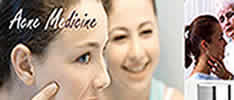Studies suggest that people with asthma are found to have low levels of certain nutrients. These nutrients include magnesium, potassium, selenium and others. The average American diet that is rich in protein and low in fruits and vegetable is associated with higher rates of asthma. It is suggested that for people with frequent asthma attack, diet rich in fruits and vegetable with sufficient vitamin C, Vitamin E, flavanoids and beta-carotene may improve the chances of lesser asthma attack.
Vitamins C and E supplements for Asthma . It is suggested that an adult person prone to asthma attack should take about 1,000 milligrams of vitamin C and 400 IU of vitamin E
Magnesium. Two large studies of suffrers of frequesnt asthma attack found that low dietary magnesium intake may be associated with risk of developing asthma in both children and adults. Taking magnesium supplements of about 500 milligrams per day is the suggested dosage along with magnesium rich diet such as whole grains, nuts, seafood, soy products, and low-fat dairy products.
N-acetylcysteine. A review of scientific studies suggests that N-acetylcysteine may help dissolve mucus and improve symptoms during asthma attack
Omega-3 Fatty Acids. Preliminary research on adults with asthma suggests that an omega-3 fatty acid supplement (from perilla seed oil, which is rich in alpha-linolenic acid [ALA], an important omega-3 fatty acid) may reduce inflammation and improve lung function. By enriching your diet with omega-3 fatty acids (from foods such as cold-water fish, flaxseeds, pumpkin seeds, and walnuts) and reduce your intake of omega-6 fatty acids (from foods like meat, egg yolks, and certain cooking oils), this may help control asthma attack
Potassium. Data from several studies suggest that compared to diets with normal amounts of potassium, diets low in potassium are associated with poor lung function and even asthma in children. Improving dietary intake of potassium through foods such as fish, fruits, and vegetables may therefore be valuable for treating or preventing asthma attack. Adequate amounts of magnesium are needed to maintain normal levels of potassium. In addition, the drug theophylline (used sometimes for asthma) may deplete potassium, as can excessive intake of salt or caffeine in the diet.
Quercetin, which is a member of a group of antioxidants called flavonoids, inhibits the production and release of histamine and other allergic/inflammatory substances. Histamine is a substance that contributes to allergy symptoms such as a runny nose, watery eyes, and hives. Like other flavonoids, quercetin is a plant pigment responsible for colors seen in fruits and vegetables. Quercetin supplements often include bromelain (an enzyme found in pineapple), which is also an anti-inflammatory and anti-allergy agent. Bromelain increases the absorption of quercetin.
Selenium. Studies suggest that people with asthma tend to have low blood levels of selenium. In addition, a population-based study (studies that evaluate groups of people) suggested that eating selenium-rich foods may have a protective effect against asthma attack. Plus, taking selenium supplements may prove to be helpful as well. In a study of 24 people with asthma, for example, those who received selenium supplements for 14 weeks demonstrated a significant improvement in asthma symptoms compared to those who received placebo. More studies, with larger numbers of people and lasting longer than 14 weeks, are needed to determine whether selenium supplementation is truly safe and effective for people with asthma.
Other supplements that may have benefit for asthma include:
Coenzyme Q 10 (CoQ10) - if you have frequest asthma attack, you may have low levels of this antioxidant in your blood. It is not known at this time, however, whether taking CoQ10 supplements will make any difference in your symptoms.
Lactobacillus acidophilus - there is some evidence that this "good" organism (called a probiotic), which is found naturally in the gut, may reduce the risk of developing an allergic reaction, including asthma. In fact, some early evidence suggests that if mothers who have at least one relative with asthma, or some other allergy-related illness, take this probiotic while pregnant and breastfeeding, their babies may be less likely to develop asthma.
Lycopene and beta-carotene - preliminary data suggests that each of these two antioxidants may prove useful for preventing exercise induced asthma symptoms when taken daily.
· Vitamin B6 - may be needed if you are taking theophylline because this medication can lower blood levels of this nutrient.





